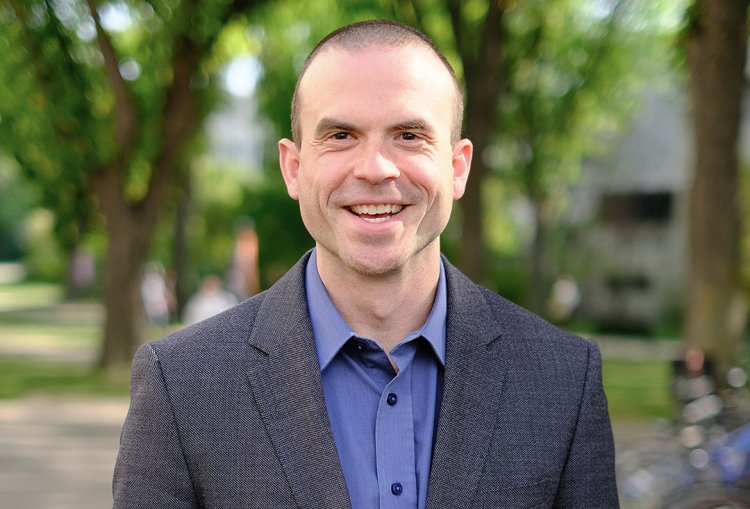
Dr. Benjamin Hoy (PhD), associate professor in the Department of History at the University of Saskatchewan. (Photo: Submitted)
As such, Hoy has received numerous accolades for his teaching, including the Lieutenant Governor's Post Secondary Teaching Award, the D2L Innovation in Teaching and Learning Award, and multiple University of Saskatchewan Students' Union (USSU) Teaching Excellence Awards nominations. He mentors faculty and students, has created open-access learning resources, and displays a commitment to Indigenization and inclusive education.
While these accolades speak for themselves, we asked USask's Distinguished Teacher Award recipient what is behind his passion.
You've received multiple awards. What was your reaction to receiving this recognition? What does recognition mean to you overall? Is it a form of validation for the work you are doing?
It was a joy to receive news about this recognition. For me, awards like this one are a reminder that success is a collective endeavour, not an individual one. It is a reflection of all the support and kindness students, mentors, and colleagues have given me over the years. I have always been a slow learner, and I have stumbled far more often than I have succeeded. For me, this recognition validates the kindness and hard work that that those around me have invested into helping me improve and learn as a teacher. In that sense, it is a recognition as much of the work hundreds of people have put in, as much as it is anything I've done myself.
Where does your passion for teaching come from? When you were a child, did you have dreams of becoming a professor? How did your childhood shape your path today?
Being passionate about teaching is something that came as a surprise for me. Throughout much of my life, I worked around teachers and educators. Both of my parents taught, as did those around them. In spite of this early connection to teaching, I never really thought that teaching would be something I would enjoy. I liked research, I knew that, but teaching always scared me.
That changed when I came to the University of Saskatchewan. I saw how passionate, earnest, and humble the students here were about their learning. Their passion was infectious, and my goals began to shift. I started to open up more about why I fell in love with history and in turn learned about the unique pathways my own students found similar loves. I started to realize that being a good teacher had less to do with teaching content and more to do with helping people learn about topics they were already passionate about. My students' passions soon became my own, changing not only how I approached teaching but my entire research program as well.
How do you empower and enable students to also become passionate about the subject matter?
Many of the students I teach are smarter than me by orders of magnitude. Over the years, I have learned that my job as a teacher is often focused around removing barriers so that my students can do their best work. Early on in my career, I tried to be a stoic teacher who shared everything I had ever learned as quickly and methodically as possible. I realized midway through my career that there are better ways to teach. Now I try to foster a joy of learning, helping students link areas of interest they already have, to core skills within the program.
Is there any particular method or teachings you use that you are most passionate about?
The method of teaching I'm most passionate about is game-based learning. When I was a kid, I fell in love with history through the games I played (Age of Empires/Civilization), not the books I read. As I grew older, I realized I was not alone. Games have helped define how societies have understood moments of change and upheaval for hundreds of years. They are important, in part, because they help us translate important, and often difficult, information across generations. Games make knowledge visceral and interactive in ways that other forms of media cannot. Our world is filled with teaching games. Monopoly was created to teach about the horrors of capitalism. Snakes and Ladders was originally created to teach about moral decision making. Even a simple deck of cards has a fascinating history. You cannot understand, for example, why aces are high in some games and low in others without understanding the social upheaval that occurred during the French Revolution. Our world is filled with these hidden connections that bind us to educators hundreds of years ago.
What kind of impact do you think your ways of teaching have on your students?
I hope one of the impacts of my teaching has been to expand the ways students think about teaching and learning. When I started as a teacher, I never thought anyone would take me seriously if I started to study games. Now game-based learning is what I'm best known for. I hope, if nothing else, my teaching helps students to see some of the often-hidden connections that tie our world together.













